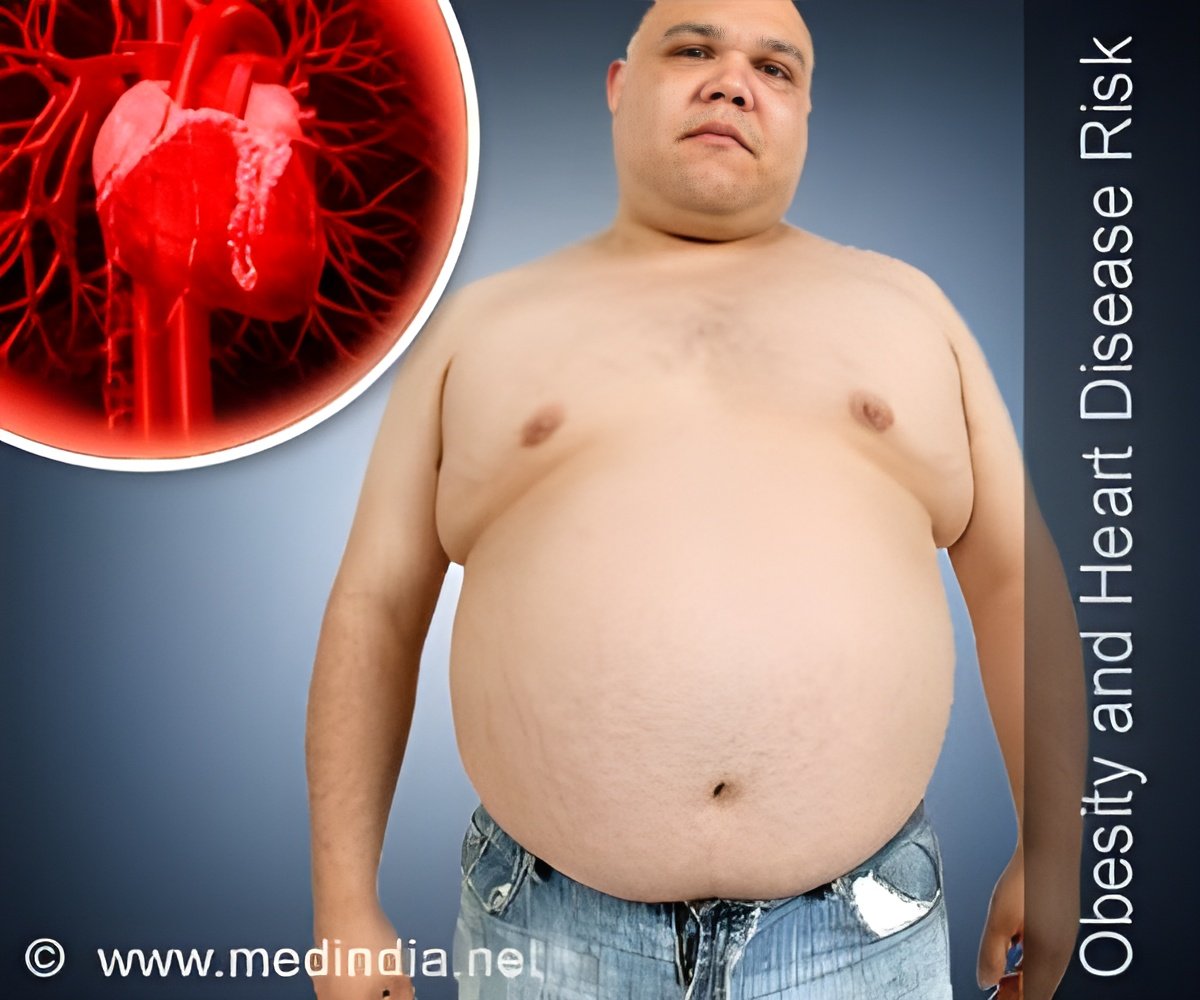Almost two-third of people who are at high risk of developing heart disease and stroke have excessive belly fat, reveals a survey.

‘Preventive factors such as reduced intake of high sugars and saturated fats, exercises and physical activity and quitting smoking can reduce 80 per cent of the burden of heart disease. ’





Cardiovascular diseases are the leading cause of death in Europe. Each year in Europe there are more than 11 million new cases of cardiovascular disease and 3.9 million deaths caused by cardiovascular disease. Elimination of risk behaviors would prevent at least 80% of cardiovascular diseases. The study also found that less than half (47%) of those on anti hypertensive medication reached the blood pressure target of less than 140/90 mmHg (less than 140/85 mmHg in patients with self-reported diabetes). Among those taking lipid-lowering drugs, only 43% attained the LDL cholesterol target of less than 2.5 mmol/L. In addition, many participants not taking any anti hypertensive and/or lipid-lowering therapy had elevated blood pressure and elevated LDL cholesterol. Among patients being treated for type 2 diabetes, 65% achieved the blood sugar target of glycated hemoglobin (HbA1c) less than <7.0%.
Professor Kornelia Kotseva, chair of the EUROASPIRE Steering Committee from Imperial College London, UK, said: "The survey shows that large proportions of individuals at high risk of cardiovascular disease have unhealthy lifestyle habits and uncontrolled blood pressure, lipids and diabetes."
EUROASPIRE is a series of cross sectional surveys on the prevention of cardiovascular disease in ESC member countries. The results of the primary care arm of EUROASPIRE V are reported on December 7th. The study was conducted in 2017 to 2018 in 78 general practices in 16 primarily European countries.
Each general practice enrolled consecutive individuals under the age of 80 years with no history of coronary artery disease or other atherosclerotic disease, but who were at high risk of developing cardiovascular disease. High risk was defined as having high blood pressure, high cholesterol, and/or diabetes; the study therefore recruited individuals who had been prescribed anti hypertensive, lipid-lowering, and/or anti-diabetes treatments (diet and/or oral hypoglycemics and/or insulin).
Advertisement
A total of 2,759 participants were interviewed and examined using standardized methods and instruments. Nearly two-thirds (64%) were centrally obese (waist circumference 88 cm or greater for women and 102 cm or higher for men). Some 37% were overweight (body mass index [BMI] 25 to 29.9 kg/m2) and 44% were obese (BMI 30kg/m2 or above). Nearly one in five participants (18%) were smokers and just 36% achieved the recommended physical activity level of at least 30 minutes, five times per week.
Advertisement
She continued: "These data make it clear that more efforts must be made to improve cardiovascular prevention in people at high risk of cardiovascular disease. Our analysis highlights the need for health care systems to invest in prevention."
"Public health initiatives will also help to prevent heart disease and stroke," Professor Kotseva highlighted. "This includes smoking bans, taxing foods high in sugar and saturated fat, and providing areas for exercise."
Source-Eurekalert















